 |
| Increasing value-added tax on cultural and sports activities is expected to limit people's access, while increasing difficulties for businesses operating in the cultural sector that are still struggling to recover from the Covid-19 pandemic. (Illustration photo) |
At the 8th Session, the draft Law on Value Added Tax (amended) was discussed by the National Assembly in a plenary session in the hall on October 29, then received, revised and continued to be commented on in the recent 39th Session of the National Assembly Standing Committee.
It is expected that on November 26, the National Assembly will vote to pass the entire draft Law.
In the proposed amendments this time, some regulations related to taxes in the cultural field are receiving attention from National Assembly deputies, as well as artists, creative practitioners, and businesses investing and operating in the cultural field.
Under current regulations, cultural activities, exhibitions, sports, performing arts, film production, film import, distribution and screening are enjoying a value-added tax (VAT) rate of 5%.
However, in the draft Law on Value Added Tax (amended) submitted to the National Assembly for consideration at the 8th Session, the above-mentioned goods and services were removed from the list of goods and services eligible for a 5% tax rate, meaning they will be subject to a 10% tax rate.
There should be more incentives for the cultural and sports sectors instead of raising tax rates.
Discussing this issue, National Assembly delegate Tran Hoang Ngan (Ho Chi Minh City delegation) said that it should not be adjusted as in the draft because for many years, the Party and State have always attached importance to culture, culture is both a goal, endogenous strength, and a driving force for economic and social development.
 |
| National Assembly Delegate Tran Hoang Ngan. |
According to the delegate, in recent times, culture has contributed to activities promoting the Vietnamese brand internationally, while also promoting and attracting international tourists to Vietnam.
However, investment in the cultural and sports sectors is currently limited and scattered. Therefore, on the occasion of this amendment to the Law on Value Added Tax, there should be more incentives for the cultural and sports sectors, not raising the tax rate.
“We should maintain the 5% tax rate for the fields of culture, literature and arts, exhibitions, sports, performances, film production, distribution and screening... As for activities related to the field of traditional folk performing arts, we should put them in the 0% tax rate group.
Only then can we have policies to support and encourage the cultural sector to become an endogenous strength and driving force for economic and social growth in the current period," said delegate Tran Hoang Ngan.
Sharing the same view, delegate Tran Thi Thu Dong (Bac Lieu delegation) also proposed to maintain the current regulation on applying the 5% VAT rate for cultural activities, exhibitions, sports, performing arts, film production, film import, distribution and screening.
According to the explanation of the delegate, in Clause 3, Article 9 of the draft Law, the scope of tax incentives has been narrowed, focusing only on traditional and folk performing arts. This will reduce people's access to cultural and sports products, especially public activities such as museums, libraries and grassroots cultural events.
Delegate Tran Thi Thu Dong stated that recently the Party and State have had many viewpoints, guidelines and policies showing special attention to the cultural field.
 |
| National Assembly Delegate Tran Thi Thu Dong. |
In the Party's most recent document on culture, Conclusion No. 84 dated June 21, 2024 of the Politburo on continuing to implement Resolution No. 23 of the 10th Politburo on continuing to build and develop literature and art in the new period, it is clearly stated that legal policies have not kept up with the practical development of literature and art, in which the socialization policy mechanism has not shown its specificity and has not met practical requirements.
In Conclusion No. 70 of 2024 of the Politburo on the development of physical training and sports in the new period, it was also determined that the policy of developing socialized sports economy, etc. is not strong enough, so when amending laws related to culture such as the Law on Corporate Income Tax and the Law on Value Added Tax, it is necessary to amend them in a way that facilitates the cultural sector.
“But according to the draft Law on Value Added Tax (amended), not only will we not keep the current preferential tax rate, but we will also double the tax rate, which may go against the Party and State's viewpoints in the cultural field,” the delegate expressed concern.
The female delegate of Bac Lieu delegation commented that in the context of the development of cultural, economic and sports industries being oriented by the Party and State as a new driving force for socio-economic development, increasing value added tax at this time will extinguish development opportunities and competitiveness of the market as well as many young Vietnamese enterprises.
According to international experience, most governments in the world support the development of the cultural, artistic, physical education and sports sectors through direct support policies such as allocation from the state budget and indirect support such as tax support, including value added tax, preferential value added tax rates for cultural and artistic activities.
This is one of the popular policies applied by many countries, especially countries near Vietnam such as Korea, Japan, China, Singapore. Therefore, delegates proposed to continue maintaining the VAT rate of 5% for cultural and sports activities in general to ensure feasibility and flexibility in management.
Increasing VAT rates on cultural and sports activities will limit people's access.
From an expert perspective, Associate Professor, Dr. Bui Hoai Son, Standing Member of the National Assembly's Committee on Culture and Education, agrees that the tax rate on cultural activities, exhibitions, physical education, sports, performing arts, film production, film import, film distribution and film screening should not be increased to 10%, but should only be kept at the current level of the Law, because culture and art is a very sensitive field for society.
 |
| Associate Professor, Dr. Bui Hoai Son, Standing Member of the National Assembly's Committee on Culture and Education. |
“We must consider investing in culture as investing in development. If we only think that investing in culture must directly benefit from culture, it will be very difficult for cultural development,” Associate Professor, Dr. Bui Hoai Son stated his opinion.
Emphasizing the importance of culture in today's social context, Associate Professor, Dr. Bui Hoai Son said that investment in culture must be calculated in a more comprehensive way. According to him, one of the bottlenecks in cultural development in recent times that the National Assembly has repeatedly emphasized through seminars and question-and-answer sessions is the bottleneck related to taxes and land...
These bottlenecks, though indirect, have extremely important impacts, not just direct cultural bottlenecks. Therefore, these bottlenecks need to be gradually removed through other laws, because in cultural laws we cannot directly regulate them.
For example, when drafting the Cinema Law, we considered having preferential tax rates for foreign film crews coming to Vietnam, but we could not stipulate it in the Cinema Law, and similarly, we could not stipulate it in the Cultural Heritage Law or the Library Law.
Therefore, when amending laws such as the Law on Corporate Income Tax and the Law on Value Added Tax, it is necessary to amend them in a way that facilitates the cultural sector. "We cannot look at the two films of Tran Thanh and Ly Hai, which earned several hundred billion VND, and see the entire Vietnamese cinema industry as bright, because there are dozens of films that are making a net loss," said a National Assembly delegate from Hanoi.
Associate Professor, Dr. Bui Hoai Son said that people doing business in the cultural field call this “risky investment”. They mainly invest because of love, because of passion for culture, but compared to other economic fields such as building bridges and roads, building apartments, supermarkets… it cannot bring such profits.
However, the draft Law on Value Added Tax (amended) not only does not maintain the current preferential tax rate for this sector (5%), but also doubles the tax rate.
“That goes against the Party and State's viewpoint in the cultural field - the field where we should focus on removing bottlenecks to promote the true role of culture in national development,” Associate Professor, Dr. Bui Hoai Son commented.
Responding to the above proposed amendment, Ms. Ngo Thi Bich Hanh, General Director of BHD - one of the first private companies in Vietnam operating in the fields of communication, distribution, and co-production of television and film programs, said that increasing VAT rates for cultural and sports activities will limit people's access. At the same time, it is also a "blow" to businesses operating in the cultural sector, which are facing many difficulties after the Covid-19 pandemic.
 |
| Ms. Ngo Thi Bich Hanh, General Director of BHD. |
“During the pandemic, we still have to pay bank interest, pay staff salaries, theaters, and many other expenses, creating huge losses for businesses. For BHD in particular, and film businesses in general, the net loss and debt of 3-4 years of Covid-19 may not be compensated for in another ten years,” Ms. Hanh shared, adding that post-Covid-19 box office revenue has only reached more than 80% compared to the pre-pandemic period.
According to her, the tax increase will cause difficulties for businesses that have worked hard to do culture, and will limit and slow down investment in culture, which will make it very difficult for the development of culture in general and the cultural industry in particular. On the other hand, this policy will also limit consumers' access to cultural and sports products.
“Consumers are very sensitive to prices. Currently, although wages are increasing, the price of many things is increasing, so in reality, with an increase in wages, consumers can still buy fewer products. Because entertainment is the easiest thing to cut down on, and people only care about food and clothing, if ticket prices increase by another 5%, total revenue will decrease, not increase,” said Ms. Ngo Thi Bich Hanh.
According to the General Director of BHD, many countries in the world have policies of tax exemption and reduction for cultural development in general and specific areas of culture in particular. For example, France, Taiwan (China), Korea, China..., these countries have been doing it since the early period of the cultural industry. They have supported for about 30-40 years, until now at the peak of the cultural industry and can stop and increase taxes. But with Vietnam, we cannot apply the current policies in countries that have developed the cultural industry but must apply policies to support the development of the cultural industry in the early stages.
Source: https://baodaknong.vn/can-nhac-ky-viec-ap-thue-suat-vat-10-doi-voi-linh-vuc-van-hoa-phim-anh-234509.html




![[Photo] General Secretary To Lam attends the 18th Hanoi Party Congress, term 2025-2030](https://vphoto.vietnam.vn/thumb/1200x675/vietnam/resource/IMAGE/2025/10/16/1760581023342_cover-0367-jpg.webp)
![[Photo] Many dykes in Bac Ninh were eroded after the circulation of storm No. 11](https://vphoto.vietnam.vn/thumb/1200x675/vietnam/resource/IMAGE/2025/10/15/1760537802647_1-7384-jpg.webp)
![[Photo] Conference of the Government Party Committee Standing Committee and the National Assembly Party Committee Standing Committee on the 10th Session, 15th National Assembly](https://vphoto.vietnam.vn/thumb/1200x675/vietnam/resource/IMAGE/2025/10/15/1760543205375_dsc-7128-jpg.webp)








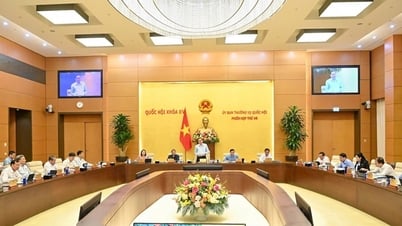


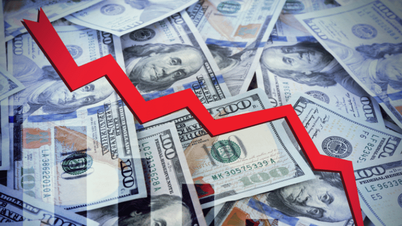












![[Video] TripAdvisor honors many famous attractions of Ninh Binh](https://vphoto.vietnam.vn/thumb/402x226/vietnam/resource/IMAGE/2025/10/16/1760574721908_vinh-danh-ninh-binh-7368-jpg.webp)














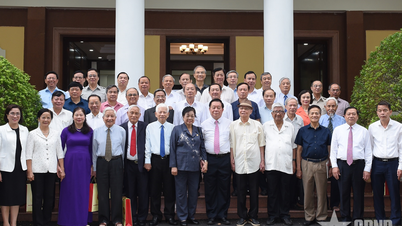



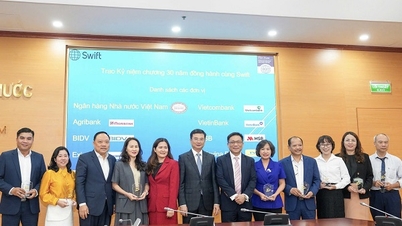












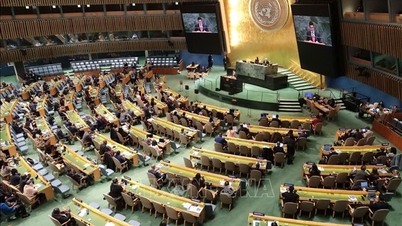






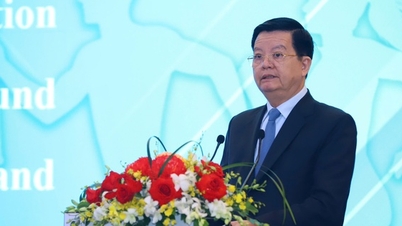

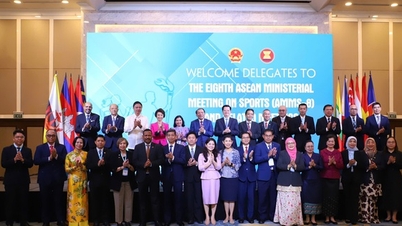
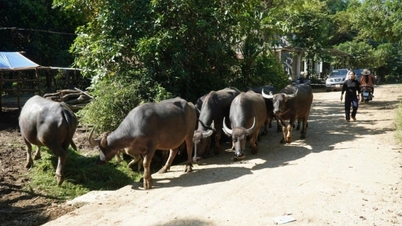























Comment (0)